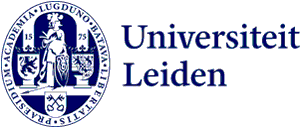
Innovative research on impact of violent conflicts on food security in Chad
Violent conflicts and civil wars in Chad impede most rural households' access to food security, agricultural activities and access to essential services such as health care. In her dissertation, Nakar Djindil Syntyche denounces this issue. She obtained her PhD on 24 November.
'My research should spur action so that the local government cannot look away anymore and work can finally be done on a better future for Chad,' says Syntyche. 'Many of the rural households seem unable to express themselves about their situation, let alone escape poverty. This research gives them a voice.'
Combined research
With her background in biological and nutritional sciences, Syntyche has so far relied mainly on figures. By joining the Faculty of Humanities, she was able to take her work beyond mere quantitative data. Using newly acquired anthropological interviewing techniques, she talked to people in the crisis area. She also participated in their daily activities. ‘A research method that helped me to learn more about the people, gain their trust and enable them to break their silence,' she says.
Important causes of food insecurity
The research’s focus area was the Guéra, an extremely impoverished crisis area characterised by chronic political instability. Syntyche conducted separate interviews with male and female residents in four villages. Afterwards, she was able to measure the degree of political stress on food security in each village. She also reconstructed the course of this stress over the years. The main causes of food insecurity in rural Chad appear to be violence, corruption and intimidation. For many rural families, these issues destroy development opportunities and the ability to cope with everyday problems.
Is there a solution?
‘Chad has been experiencing violent conflicts since 1965. It is difficult to find an immediate solution,' says Syntyche. 'But I do hope to contribute to the national dialogue, to improve the living conditions of rural households.' She namely advocates a number of improvements that can make a difference, such as access to clean water and health care. But also lifestyle changes, fair justice and access to education are tools for a better future. Social themes must also be included in the education curriculum, such as cohabitation, social acceptance, respect and empowerment. ‘Many young people who have been brought up surrounded by violence, insecurity and stress do not know how to provide for the needs of their (future) household.'
Future plans
‘I look back on my time in Leiden with warm feelings. I learned a lot and the best guidance was always there', says Syntyche. With some encouragement from people around her, this is where she first learned to ride a bike. ‘Now I am a professional!,' she says, laughing. Yet her future does not lie in Leiden. ‘The people in the crisis area gave me such a warm welcome - even though it was dangerous in their circumstances. After my PhD, I want to start a partnership to fix the neglect and violence in the affected villages, so that one day they will meet the minimum requirements for a better life. I owe them that.'
